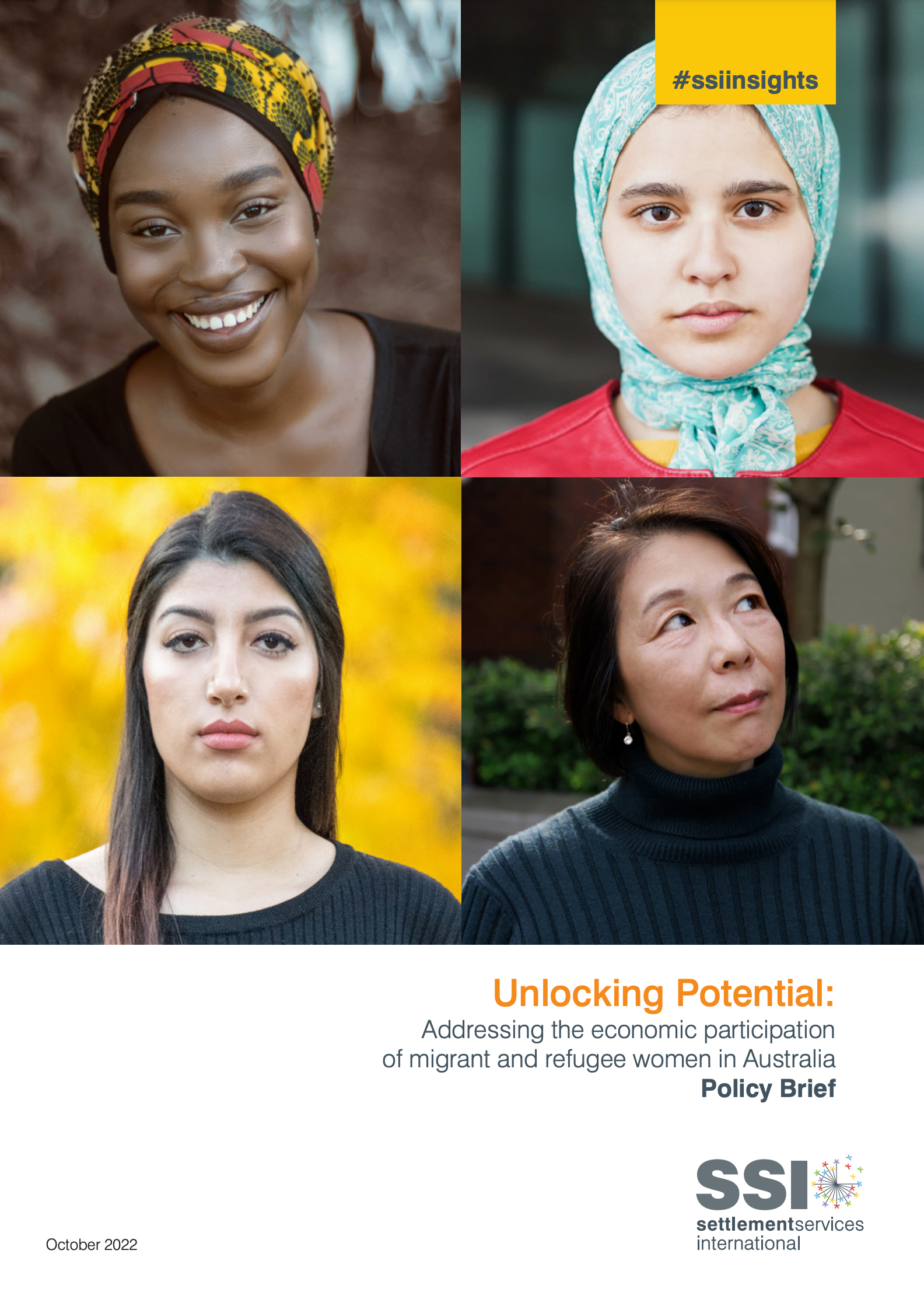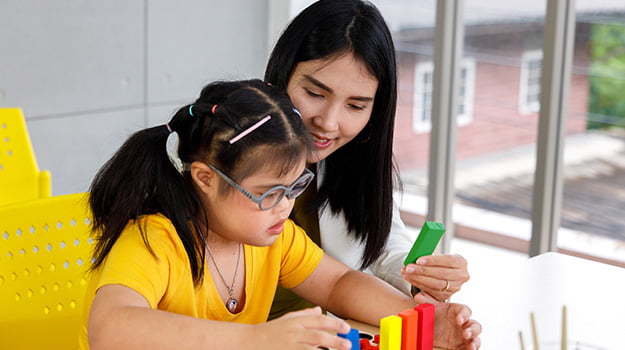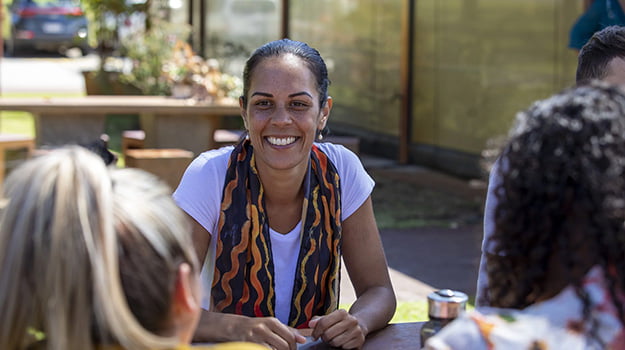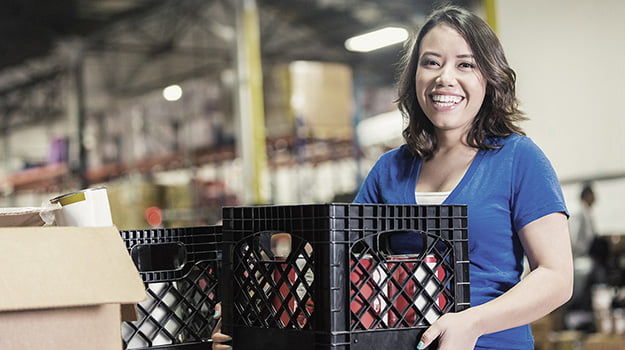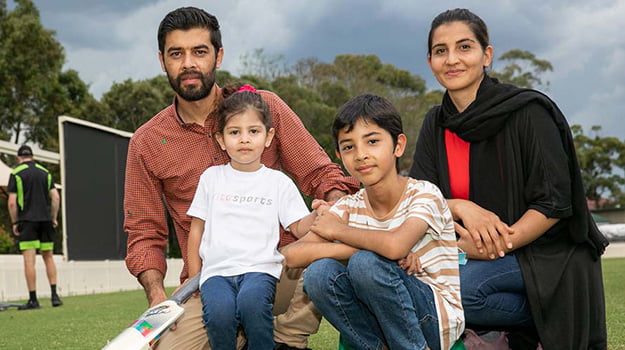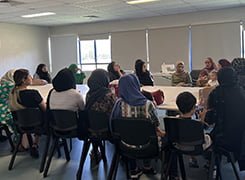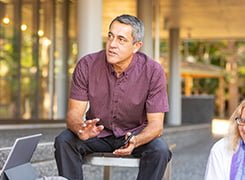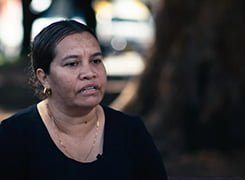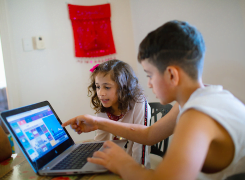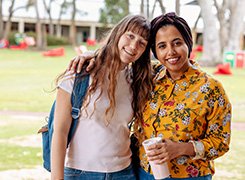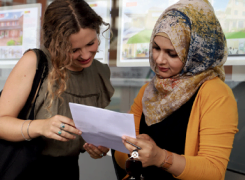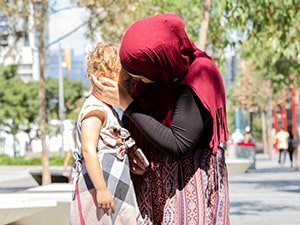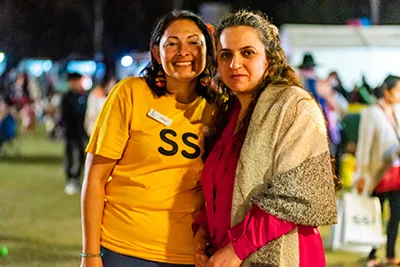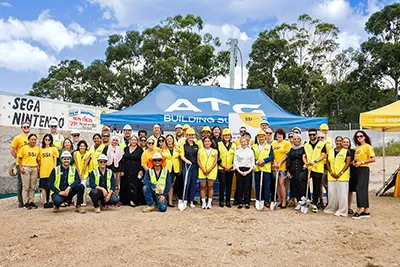SSI’s 2023- 2026 Impact Strategy articulates our longer-term impact with 15 priority outcomes across six outcome domains. Our strategy sets out four strategic goals to enable us to achieve our outcomes and deliver greater, measurable impact. A key strategic goal is to influence change through our sector leadership, advocacy and policy contributions with a focus on shifting the dial to unleash the economic potential of refugees and migrants.
SSI’s Public Policy Agenda provides a foundation for SSI’s advocacy and a coherent set of asks that build on the strengths of SSI and our sector. As part of this work, we have developed a series of policy briefs to increase awareness of key issues impacting the communities we work with to support external engagement with government and sector stakeholders.
Download the Public Policy Agenda overview
Policy brief: A strong start: supporting the development, safety and wellbeing of Australia’s culturally diverse children
The policy brief “A Strong Start” argues for a stronger focus on responding to multicultural children in Australia. Children who start school behind, stay behind, yet children from culturally diverse backgrounds experience distinct barriers to early childhood education.
This brief makes the case for a mix of targeted and place-based interventions to complement universal approaches and improve access by culturally diverse children. The brief also examines early intervention to address child harm and neglect, arguing for a more culturally responsive approach for multicultural families; and where children cannot live safely with their birth family, for ways to maintain and nurture children’s cultural connections and identity. Policy and practice is not keeping pace with Australia’s increasing ethnic, linguistic and cultural diversity.
The brief recommends a national advisory body for children from multicultural backgrounds, to advise on systemic reforms to support these children’s development, safety and wellbeing.
Download A strong start
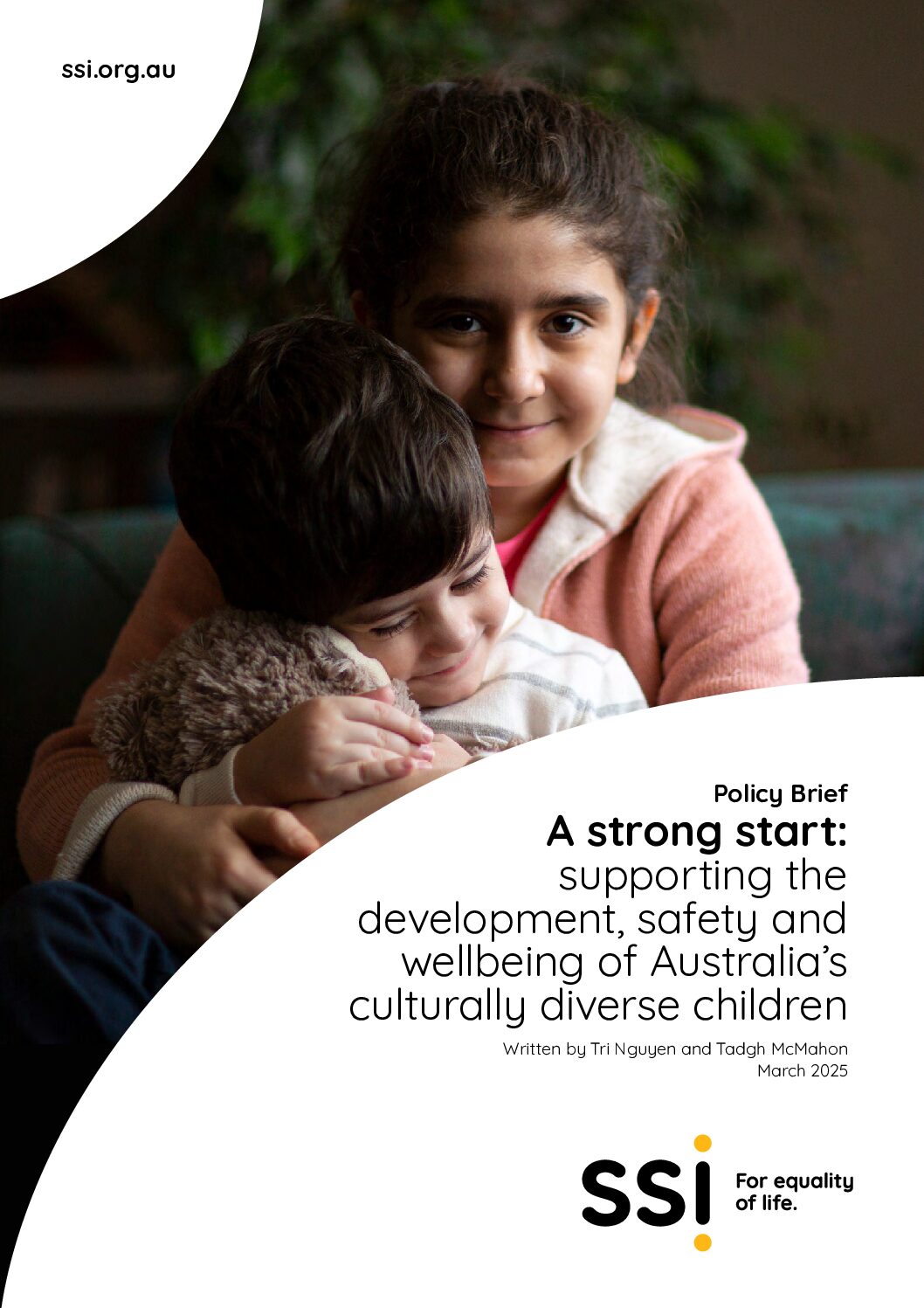
Policy brief: Hitting the mark: specialised responses in services and initiatives for a multicultural Australia
The policy brief “Hitting the mark” makes the case for a stronger focus on specialised services and other initiatives in Australia which is more diverse – ethnically, linguistically, culturally – than ever before. Cultural, ethnic and linguistic background is often associated with disparities seen across a range of social and economic outcomes including health, education, housing and employment; pointing to wider causes rooted in structural inequalities.
Delivering inclusive, accessible services that respond to the diverse lived experiences and identities of Australians is a core responsibility for mainstream, specialised services and place-based approaches alike. Specialist providers are able to draw on skills and capabilities that are responsive to the particular needs of disadvantaged groups and can deliver strong reach and outcomes to disadvantaged cohorts. The policy brief includes case studies pointing to policy solutions drawing on SSI’s broad experience in delivering specialised services to migrants and refugees.
Download Hitting the mark
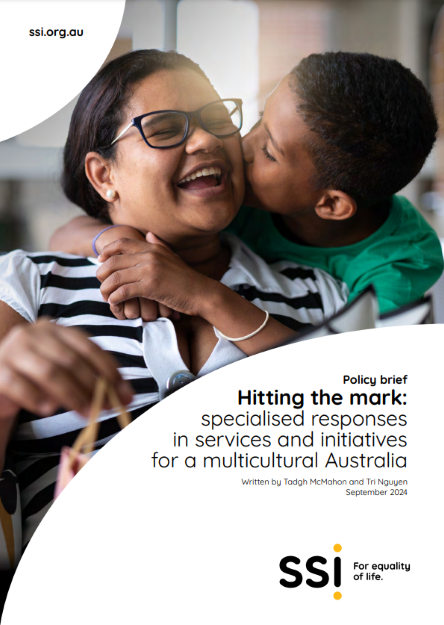
Policy brief: Building pathways to belonging: Advancing integration for newcomers in Australia
The policy brief “Building pathways to belonging: Advancing integration for newcomers in Australia” provides practical policy solutions to improve the settlement and integration of migrants and refugees in Australia.
Successful integration is a goal shared by newcomers, the communities they settle in and government at all levels and is critical to maintaining public support for immigration. Australia’s approach to integration also matters because the way that countries treat newcomers underpins social cohesion and inclusion.
Yet, in recent years, much of the discussion of Australia’s migration policy has focused on the number of migrants and refugees granted permission to enter the country each year. There has been limited attention to how we create pathways for newcomers to become more fully integrated into their new homeland. Compared with similar migrant-receiving countries, Australia is going backward in terms of policies to support the integration of migrants and refugees.
Settlement and integration require mutual adaptation and shared responsibility by everyone, including newcomers, receiving communities, and government at all levels
Download Building pathways to belonging
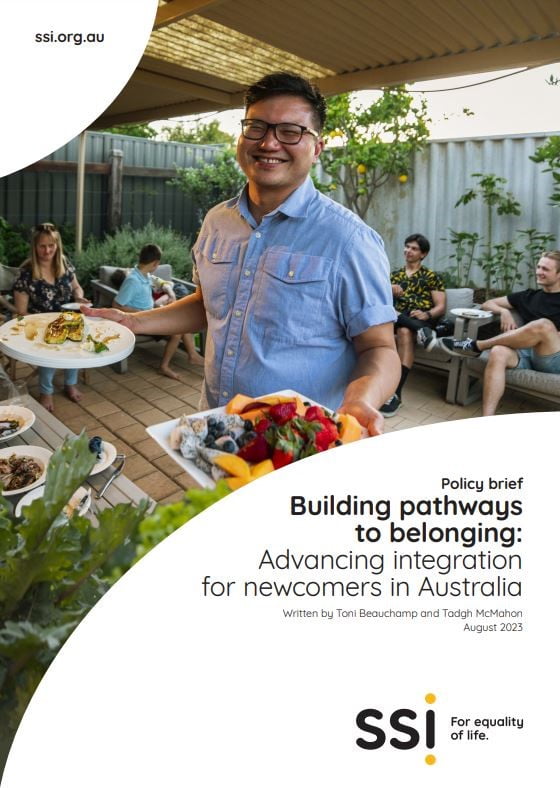
Policy brief: Regional migration and settlement: Putting down roots to revitalise regional communities in Australia
When newcomers settle and put down roots in regional communities, there are significant benefits for newcomers, the receiving community and the Australian society and economy alike. The movement of newcomers to regional areas can alleviate population decline, fill labour shortages and enrich cultural diversity.
In recent years, Australian Government policies have sought to promote migration and settlement in regional communities. While government policies have helped to increase initial settlement of migrants and refugees in regional areas, helping newcomers and local receiving communities develop lasting ties remains a challenge. This highlights the need for a greater focus on supporting newcomers in regional areas to develop lasting connections that benefit them and the regional communities where they settle
The policy brief “Putting down roots to revitalise regional communities in Australia” shines a light on policy solutions to address this issue. It is informed by SSI’s recent experience and research on refugee settlement in Armidale, NSW. It also draws insights from successful approaches used in Canada in settling and retaining newcomers outside of major cities.
Download Regional migration and settlement
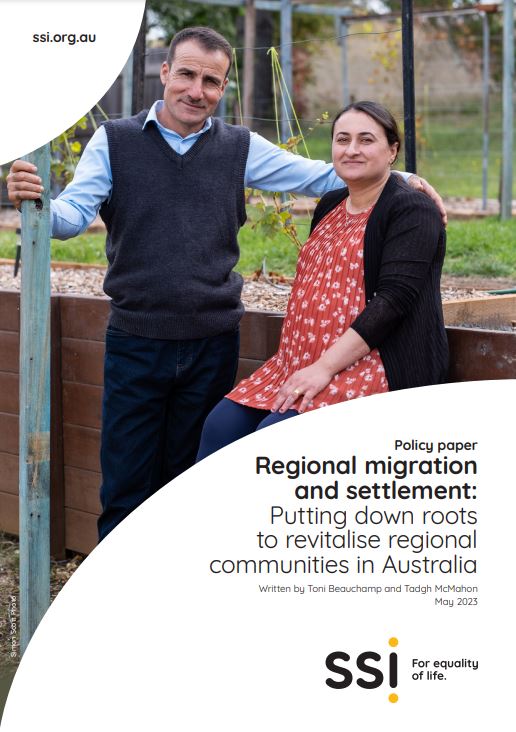
Policy brief: Jumping through hoops: barriers to basic rights and opportunities for newcomers to Australia
The policy brief “Jumping through hoops” highlights policy solutions to improve access to basic rights and opportunities for newcomers to Australia.
In recent years, successive Australian Governments have introduced policies which restrict eligibility and extend waiting times for newcomers with permanent or temporary residency to access income support and essential services, and to apply for citizenship.
Australia’s approach to providing basic rights and opportunities matters not only because of the impacts on the wellbeing of newcomers but also because the way that governments treat migrants and refugees underpins social cohesion. Inclusive policies provide the foundation for positive attitudes and interactions between newcomers and the broader community and nurture an overall sense of belonging, well-being and trust.
Australia’s approach to providing basic rights and opportunities to newcomers also matters as we emerge from the COVID-19 pandemic and seek to rebuild the labour force that we need and attract newcomers. Similar countries around the world are also experiencing skill shortages and competing for talent. Australia must rebuild its reputation as a country that is welcoming and inclusive of newcomers to position itself as a destination of choice for migrants, students and temporary workers
Download Jumping through hoops
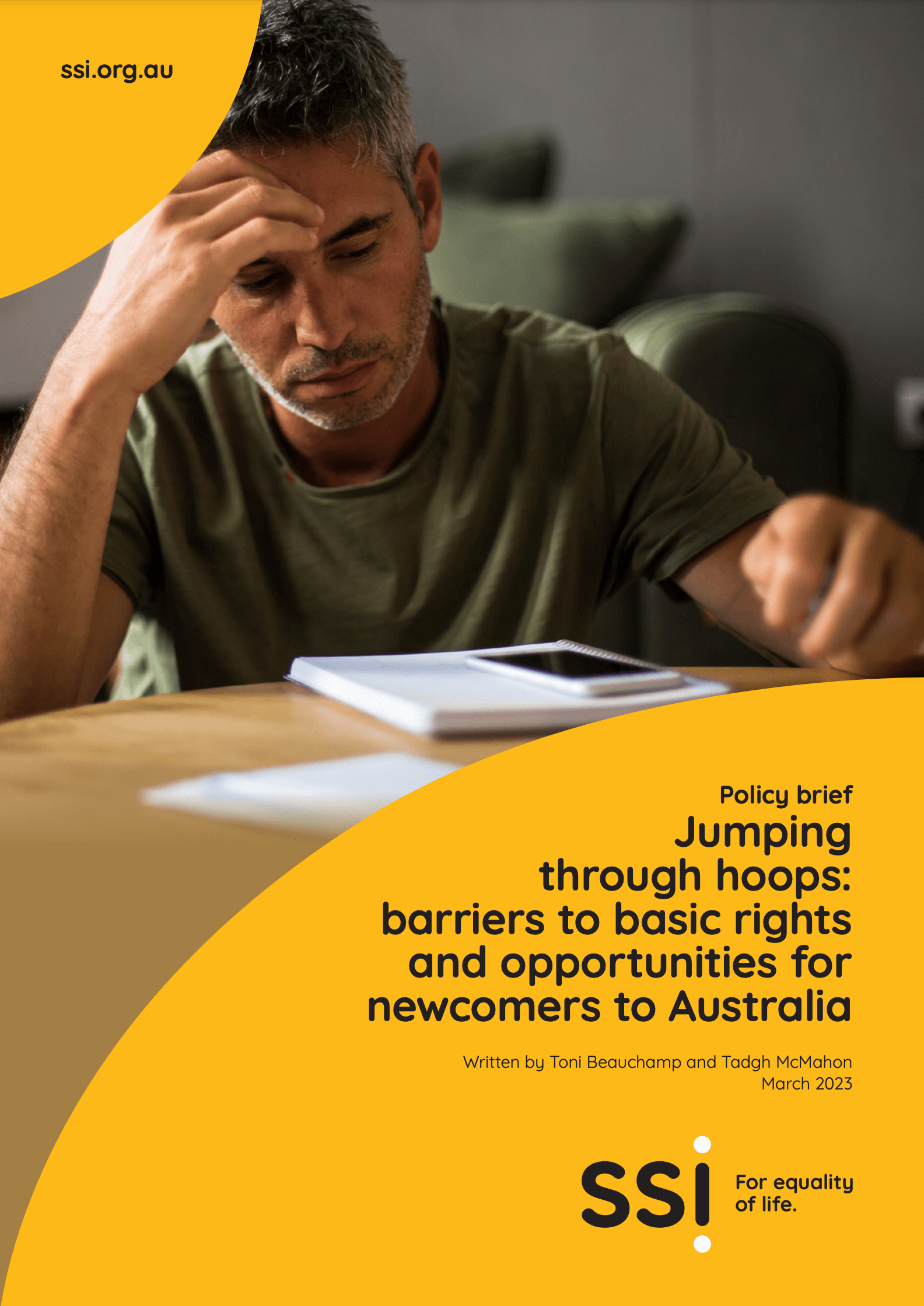
Policy brief: Unlocking Potential
The policy brief “Unlocking Potential” shines a light on actions needed to unlock the economic potential of migrant and refugee women.
Drawing on the ‘Untapped Potential’ research, commissioned by SSI and carried out by the National Centre for Social and Economic Modelling (NATSEM), highlights how migrant women from low- and middle-income countries and refugee women have greater or similar levels of education to women born in Australia yet are more likely to be employed in roles below their education and experience.
Many of these women have sought after skills and experience in industries facing critical shortages, such as the health and social sectors.
A more tailored and targeted policy response is needed at Federal and State/Territory levels to unlock the economic potential of migrant and refugee women.
Download Unlocking Potential
